-
 Bitcoin
Bitcoin $87,523.6964
3.26% -
 Ethereum
Ethereum $1,646.4082
3.22% -
 Tether USDt
Tether USDt $1.0000
0.00% -
 XRP
XRP $2.1288
2.92% -
 BNB
BNB $605.7126
1.96% -
 Solana
Solana $140.2824
0.62% -
 USDC
USDC $0.9999
0.00% -
 Dogecoin
Dogecoin $0.1622
3.35% -
 TRON
TRON $0.2455
1.60% -
 Cardano
Cardano $0.6464
3.45% -
 Chainlink
Chainlink $13.6669
5.23% -
 UNUS SED LEO
UNUS SED LEO $9.4428
1.13% -
 Avalanche
Avalanche $20.8903
6.50% -
 Stellar
Stellar $0.2588
5.72% -
 Toncoin
Toncoin $3.0491
2.18% -
 Shiba Inu
Shiba Inu $0.0...01272
2.84% -
 Hedera
Hedera $0.1735
5.65% -
 Sui
Sui $2.2481
5.36% -
 Bitcoin Cash
Bitcoin Cash $341.9682
2.17% -
 Polkadot
Polkadot $3.9685
2.57% -
 Hyperliquid
Hyperliquid $18.3224
3.32% -
 Litecoin
Litecoin $80.5596
5.16% -
 Dai
Dai $1.0000
0.00% -
 Bitget Token
Bitget Token $4.4661
-0.61% -
 Ethena USDe
Ethena USDe $0.9992
0.00% -
 Pi
Pi $0.6374
0.64% -
 Monero
Monero $214.9777
-0.72% -
 Uniswap
Uniswap $5.4812
4.01% -
 Pepe
Pepe $0.0...07866
5.37% -
 Aptos
Aptos $5.2374
7.10%
What is SUSHI coin? Introduction to platforms that can buy and sell SUSHI coins
SushiSwap's native token, SUSHI, empowers holders with platform governance, liquidity provider rewards, staking incentives, and serves as a transaction fee medium.
Oct 01, 2024 at 04:35 am
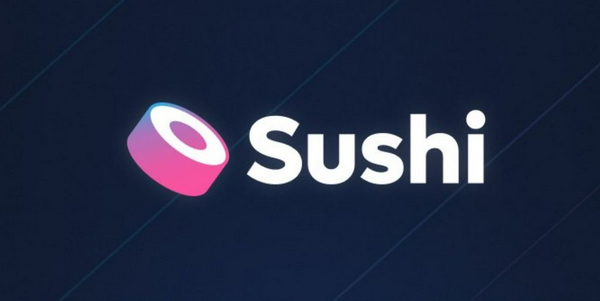
What is SUSHI Coin?
SUSHI is the native token of the SushiSwap decentralized exchange (DEX), which operates on the Ethereum blockchain. It was launched in August 2020 as an alternative to the popular decentralized exchange Uniswap.
Features and Use Cases of SUSHI Coin:
- Governance Token: SUSHI holders participate in the governance of SushiSwap through SushiGov, the platform's governance mechanism.
- Liquidity Provider Incentives: SushiSwap rewards liquidity providers who stake SUSHI in liquidity pools with swap fees and SUSHI tokens.
- Staking Rewards: SUSHI can be staked in the SushiBar to earn rewards proportionate to the staked amount.
- Transaction Fees: SUSHI is used as a transaction fee on SushiSwap, earning swap revenue for the platform.
Platforms to Buy and Sell SUSHI Coins:
1. Centralized Exchanges (CEXs)
- Binance
- Coinbase
- FTX
- Huobi Global
2. Decentralized Exchanges (DEXs)
- SushiSwap
- Uniswap
- 0x
- Bancor
3. Hardware Wallets
Hardware wallets such as Trezor and Ledger Nano allow you to store SUSHI coins securely offline.
Steps to Purchase SUSHI Coins:
- Create an account on a cryptocurrency exchange (CEX) or DEX.
- Fund your account with a supported cryptocurrency (e.g., BTC, ETH).
- Search for SUSHI coin in the exchange's trading terminal.
- Enter the desired amount of SUSHI you want to purchase.
- Place a buy order and wait for it to be executed.
Note:
- It's advisable to transfer your SUSHI coins to a hardware wallet for increased security.
- Before purchasing SUSHI, research the project thoroughly and understand its risks.
Disclaimer:info@kdj.com
The information provided is not trading advice. kdj.com does not assume any responsibility for any investments made based on the information provided in this article. Cryptocurrencies are highly volatile and it is highly recommended that you invest with caution after thorough research!
If you believe that the content used on this website infringes your copyright, please contact us immediately (info@kdj.com) and we will delete it promptly.
- Remittix (RTX) Rips It in Presale Action As Investors Await the Next Market Movements
- 2025-04-21 17:00:12
- 9 Rare Coins That Could Make You a Millionaire
- 2025-04-21 17:00:12
- Voxies (VOXEL) Token Price Soars 200% After Bitget (BITGET) Bot Glitch Allows Users to Scoop Free Money
- 2025-04-21 16:55:12
- Despite Growing Frenzy Over XRP ETFs, BlackRock Remains Silent
- 2025-04-21 16:55:12
- Sui [SUI]'s Ecosystem Continues to Gain Impressive Traction, Total Accounts Soar Past 150 Million
- 2025-04-21 16:50:13
- Coins Worth Millions
- 2025-04-21 16:50:13
Related knowledge
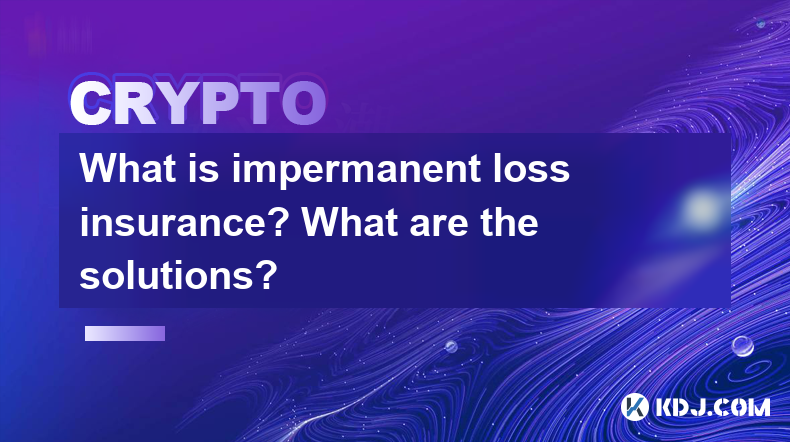
What is impermanent loss insurance? What are the solutions?
Apr 12,2025 at 01:14am
What is Impermanent Loss Insurance? What are the Solutions? Impermanent loss is a significant concern for liquidity providers in decentralized finance (DeFi) platforms. It occurs when the price of tokens in a liquidity pool changes compared to when they were deposited, leading to a potential loss if the provider decides to withdraw their liquidity. To m...
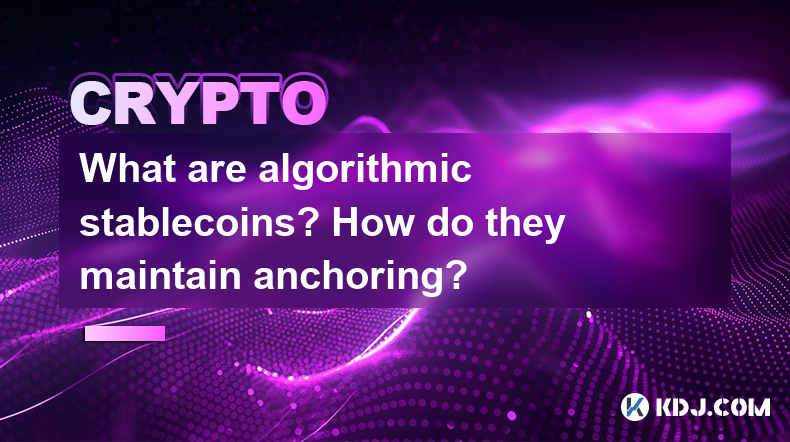
What are algorithmic stablecoins? How do they maintain anchoring?
Apr 12,2025 at 11:35am
Algorithmic stablecoins represent a fascinating and innovative segment within the cryptocurrency ecosystem. These digital assets are designed to maintain a stable value, typically pegged to a fiat currency like the US dollar, through the use of algorithms rather than traditional collateral. This approach distinguishes them from other types of stablecoin...
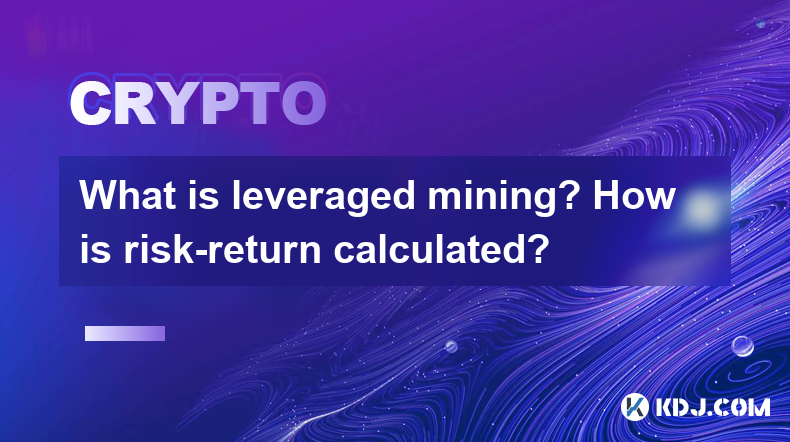
What is leveraged mining? How is risk-return calculated?
Apr 11,2025 at 04:07pm
What is Leveraged Mining? How is Risk-Return Calculated? Leveraged mining is a strategy used in the cryptocurrency space where miners borrow funds to increase their mining capacity and potential returns. This approach can amplify both profits and losses, making it a high-risk, high-reward endeavor. Understanding how to calculate the risk and return asso...
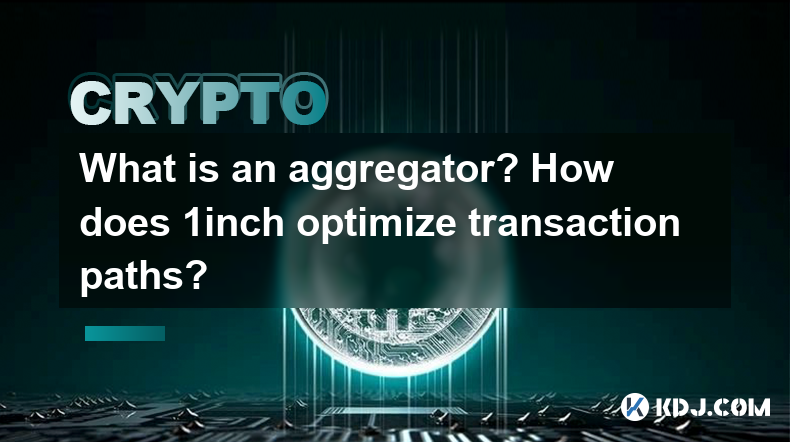
What is an aggregator? How does 1inch optimize transaction paths?
Apr 12,2025 at 05:00pm
An aggregator in the cryptocurrency space is a tool that compiles and compares data from multiple decentralized exchanges (DEXs) to find the best possible trading routes and prices for users. Aggregators are essential for traders looking to optimize their transactions, as they can automatically search through various liquidity sources to ensure the most...
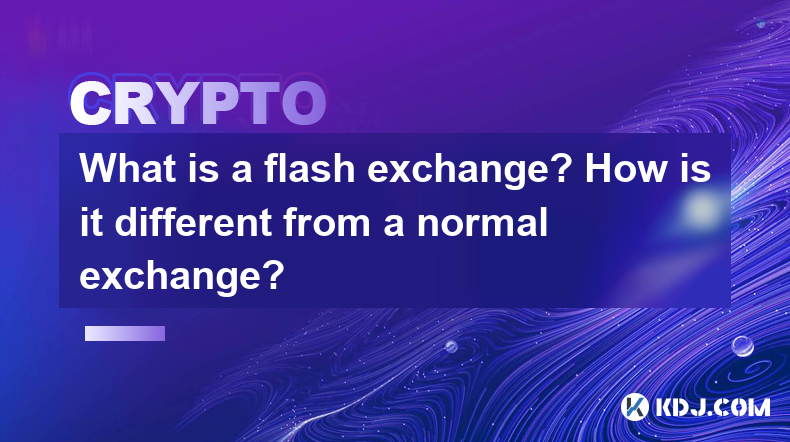
What is a flash exchange? How is it different from a normal exchange?
Apr 16,2025 at 03:43pm
A flash exchange, also known as a flash swap, is a relatively new concept within the cryptocurrency space that has gained significant attention due to its innovative approach to trading. Unlike traditional exchanges, flash exchanges leverage the power of decentralized finance (DeFi) protocols to enable instant, collateral-free trades. In this article, w...
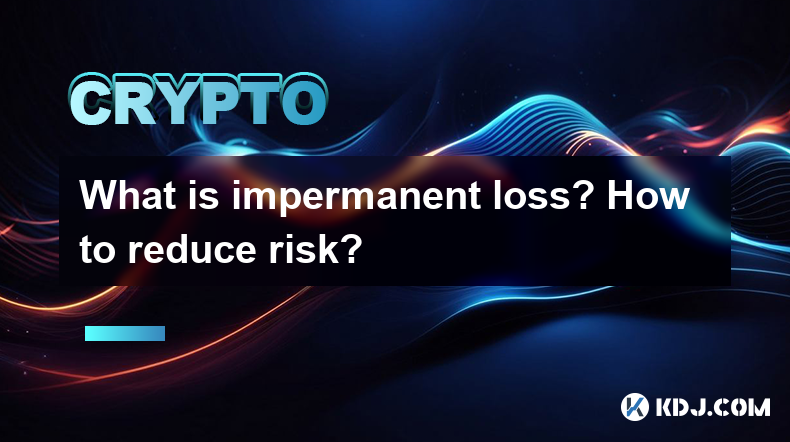
What is impermanent loss? How to reduce risk?
Apr 16,2025 at 11:14pm
What is Impermanent Loss? How to Reduce Risk? Impermanent loss is a term that frequently surfaces in the world of decentralized finance (DeFi), particularly when discussing liquidity provision on automated market makers (AMMs) like Uniswap or SushiSwap. Understanding this concept is crucial for anyone looking to engage in liquidity provision, as it dire...

What is impermanent loss insurance? What are the solutions?
Apr 12,2025 at 01:14am
What is Impermanent Loss Insurance? What are the Solutions? Impermanent loss is a significant concern for liquidity providers in decentralized finance (DeFi) platforms. It occurs when the price of tokens in a liquidity pool changes compared to when they were deposited, leading to a potential loss if the provider decides to withdraw their liquidity. To m...

What are algorithmic stablecoins? How do they maintain anchoring?
Apr 12,2025 at 11:35am
Algorithmic stablecoins represent a fascinating and innovative segment within the cryptocurrency ecosystem. These digital assets are designed to maintain a stable value, typically pegged to a fiat currency like the US dollar, through the use of algorithms rather than traditional collateral. This approach distinguishes them from other types of stablecoin...

What is leveraged mining? How is risk-return calculated?
Apr 11,2025 at 04:07pm
What is Leveraged Mining? How is Risk-Return Calculated? Leveraged mining is a strategy used in the cryptocurrency space where miners borrow funds to increase their mining capacity and potential returns. This approach can amplify both profits and losses, making it a high-risk, high-reward endeavor. Understanding how to calculate the risk and return asso...

What is an aggregator? How does 1inch optimize transaction paths?
Apr 12,2025 at 05:00pm
An aggregator in the cryptocurrency space is a tool that compiles and compares data from multiple decentralized exchanges (DEXs) to find the best possible trading routes and prices for users. Aggregators are essential for traders looking to optimize their transactions, as they can automatically search through various liquidity sources to ensure the most...

What is a flash exchange? How is it different from a normal exchange?
Apr 16,2025 at 03:43pm
A flash exchange, also known as a flash swap, is a relatively new concept within the cryptocurrency space that has gained significant attention due to its innovative approach to trading. Unlike traditional exchanges, flash exchanges leverage the power of decentralized finance (DeFi) protocols to enable instant, collateral-free trades. In this article, w...

What is impermanent loss? How to reduce risk?
Apr 16,2025 at 11:14pm
What is Impermanent Loss? How to Reduce Risk? Impermanent loss is a term that frequently surfaces in the world of decentralized finance (DeFi), particularly when discussing liquidity provision on automated market makers (AMMs) like Uniswap or SushiSwap. Understanding this concept is crucial for anyone looking to engage in liquidity provision, as it dire...
See all articles






















































































